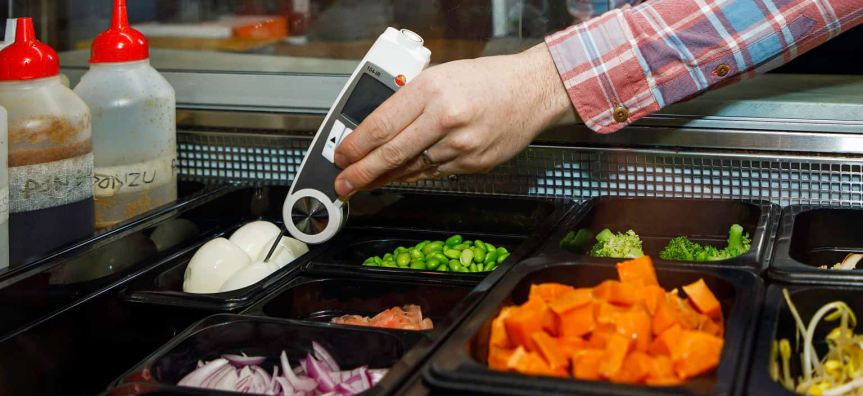A new food safety standard for retail food businesses came into effect on 8 December 2023.
School canteens, children’s services that supply food, supermarkets greengrocers, delis, coffee vendors that sell food, correctional centres and boarding schools have until 8 December 2024 to comply.
The Standard was developed by Food Standards Australia New Zealand and applies to organisations that handle unpackaged, ready-to-eat foods including previously exempt school canteens and childcare centres.
Under the new standard, food businesses must:
- Have a qualified onsite food safety supervisor, who is reasonably available to supervise food handlers.
- Ensure all food handlers are trained in food safety and hygiene, or can demonstrate adequate skills and knowledge.
- Maintain a record of their food safety risk management or be able to show their food is safe.
Affected businesses
The standard applies to food businesses which are defined as a category one or category two.
Category one businesses
Businesses that process and serve food that is potentially hazardous and ready to eat need to implement all three above listed food safety management tools. They must be able to show they are safely receiving, storing, processing, displaying and transporting potentially hazardous food and cleaning and sanitising.
Examples include restaurants, takeaways, cafes, mobile food vendors, caterers, bakeries, childcare centres and school canteens.
Category two businesses
Businesses that sell food they have not made or processed (except for only slicing, weighing, repacking, reheating or hot holding) that is potentially hazardous and ready to eat will need to implement number 1 and 2 above listed food safety management tools.
Examples include delis, supermarkets, service stations and seafood retailers.
Food safety supervisors
Food safety supervisors oversee day to day food handling operations, help food handlers safely handle food and manage food safety risks. They must be certified within the past five years and have skills and knowledge in food safety, especially around high risks foods. Food safety supervisor training is undertaken from an approved Registered Training Organisation. Read more: Food safety supervisor guideline.
Food handler training
Food business can choose how food handlers are trained, but it must cover:
- Safe handling of food
- Understanding of food contamination
- Cleaning and sanitising of food premises and equipment
- Personal hygiene
The NSW Food Authority’s free online training module covers the basic requirements. Food businesses may use other free online food safety training programs, courses from vocational training providers, or training developed by the business or other food businesses where the employee previously worked. Internal training may also be tailored to suit the business’s own activities and procedures.
In addition to strengthening the food safety supervisor requirements, the new tools require food handlers to complete food safety training and higher risk businesses to maintain records showing food safety practices.

